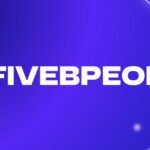In the digital age, where online anonymity and freedom of expression are highly valued, platforms like Anonib have emerged as subjects of debate. Known for its anonymous posting format, Anonib has attracted both curiosity and criticism. In this comprehensive article, we’ll delve into what Anonib is, how it works, the controversies surrounding it, and the implications it has on digital privacy, ethics, and online communities.
What Is Anonib?
Anonib is an anonymous imageboard website that allows users to share and discuss images and topics without revealing their identities. Similar to older platforms like 4chan or Reddit’s anonymous subforums, Anonib gained attention due to its unique focus on unrestricted user interaction and content sharing.
The site is structured around boards that are typically categorized by location, theme, or interest. Users can post threads, upload images, and engage in discussions freely. However, unlike moderated forums, Anonib often operates in a gray area of online regulation, leading to its controversial reputation.
The Origins of Anonib
Anonib’s roots trace back to the early 2000s internet culture, where anonymity was a key aspect of online communities. It emerged as a hub for users who wanted to post and discuss sensitive content without the risk of personal exposure. Over time, it evolved into a global network of boards, each representing different regions or topics, giving users localized spaces to share content.
This localized structure made Anonib distinct—it was not just a global message board but a collection of regional communities, often centered around specific cities or countries.
How Anonib Works
Using Anonib is relatively simple. The platform’s interface is minimalistic and designed for fast image sharing. Users do not need to create an account to post or comment, maintaining complete anonymity.
Here’s how it typically functions:
- Users Select a Board: Each board corresponds to a specific topic or region.
- Posts Are Made Anonymously: There are no usernames or profiles, allowing users to post without identity tracking.
- Threads Develop: Other anonymous users can reply to posts, upload images, and engage in discussions.
- Moderation Is Minimal: Content remains visible until it’s reported or automatically deleted due to inactivity.
This open structure promotes free speech but also raises serious ethical and legal questions regarding privacy and consent.
The Controversies Surrounding Anonib
Anonib has faced significant controversy due to user-generated content. While it was intended to be a neutral platform for anonymous discussions, some users have used it for unethical activities. This has led to public backlash and law enforcement attention in several countries.
Privacy Violations
One of the major issues tied to Anonib is the unauthorized sharing of private or intimate photos—often referred to as revenge porn. Victims have reported that their images were posted without consent, leading to severe emotional and reputational harm.
These incidents sparked debates about the balance between anonymity and accountability online. Many internet safety advocates argue that while anonymity protects freedom of speech, it can also facilitate abusive behavior when left unchecked.
Legal Challenges
Due to its content and hosting structure, Anonib has been shut down and relaunched multiple times. Authorities in different countries have investigated the platform for hosting illegal materials and violating data protection laws. Each time it reappears, it often operates under different domain names or mirror sites, making it difficult to regulate.
Anonib and Online Anonymity
Anonib represents the double-edged nature of online anonymity. On one side, anonymity allows people to speak freely about personal, political, or controversial topics without fear of retaliation. On the other, it can become a tool for malicious actions, as users feel shielded from consequences.
Benefits of Anonymity
- Freedom of Speech: Users can discuss taboo or sensitive subjects without censorship.
- Privacy Protection: Anonymity ensures that personal data remains undisclosed.
- Community Building: Like-minded individuals can gather in niche communities without fear of social judgment.
Drawbacks of Anonymity
- Lack of Accountability: Without user identities, harmful content can spread unchecked.
- Harassment and Abuse: Some users exploit the lack of moderation to target others.
- Misinformation: Anonymity can encourage the sharing of false or misleading information.
The Ethics of Using Platforms Like Anonib
From an ethical standpoint, the use of platforms like Anonib poses complex dilemmas. While the internet thrives on open communication, users must also respect the boundaries of others’ privacy and consent. The absence of regulation on Anonib highlights the need for digital responsibility among its users.
We must collectively understand that freedom online should not come at the expense of others’ safety or dignity. Ethical engagement means refraining from posting private material without permission and promoting respectful discourse.
Safer Alternatives to Anonib
For users who value anonymous communication but wish to avoid the risks associated with Anonib, there are safer alternatives:
- Reddit (Anonymous Subreddits): Certain subreddits allow pseudonymous posting while maintaining community rules.
- 4chan: Although controversial, it maintains more moderation compared to Anonib.
- Discord Servers: With proper moderation, users can engage anonymously in private groups.
- Whisper or Yik Yak: Designed for anonymous communication, but within more structured guidelines.
These platforms provide safer and more ethical environments for sharing thoughts and discussions without crossing legal or moral lines.
Protecting Yourself Online
If you have ever interacted with platforms like Anonib, it’s vital to take measures to protect your digital identity:
- Avoid Sharing Personal Information: Never upload identifiable photos or data.
- Use VPNs and Secure Browsers: This helps protect your location and online footprint.
- Monitor Your Digital Presence: Regularly check search engines for unauthorized content involving your name or images.
- Report Illegal Content: If you find non-consensual material, report it to local authorities or cybercrime units immediately.
Being proactive about digital safety ensures that your privacy remains intact, even in the anonymous corners of the web.
The Future of Anonib and Anonymous Platforms
As online privacy debates intensify, the future of Anonib remains uncertain. Governments and organizations continue to pressure anonymous platforms to enforce stricter moderation and identity verification. However, the demand for unfiltered online spaces persists among users seeking freedom of expression.
The challenge lies in balancing freedom with responsibility—ensuring that anonymity does not turn into a shield for unethical or illegal behavior. Future platforms may adopt blockchain-based identity protection or AI moderation to preserve anonymity while minimizing abuse.
Conclusion
Anonib stands as a striking example of how anonymity can both empower and endanger users in the digital world. It underscores the importance of responsible online behavior, ethical engagement, and awareness of the potential consequences of unmoderated freedom.
While the allure of anonymous platforms continues, it’s our collective responsibility to ensure that they are used ethically and safely. Understanding platforms like Anonib helps us navigate the evolving landscape of digital privacy and online ethics more wisely.



